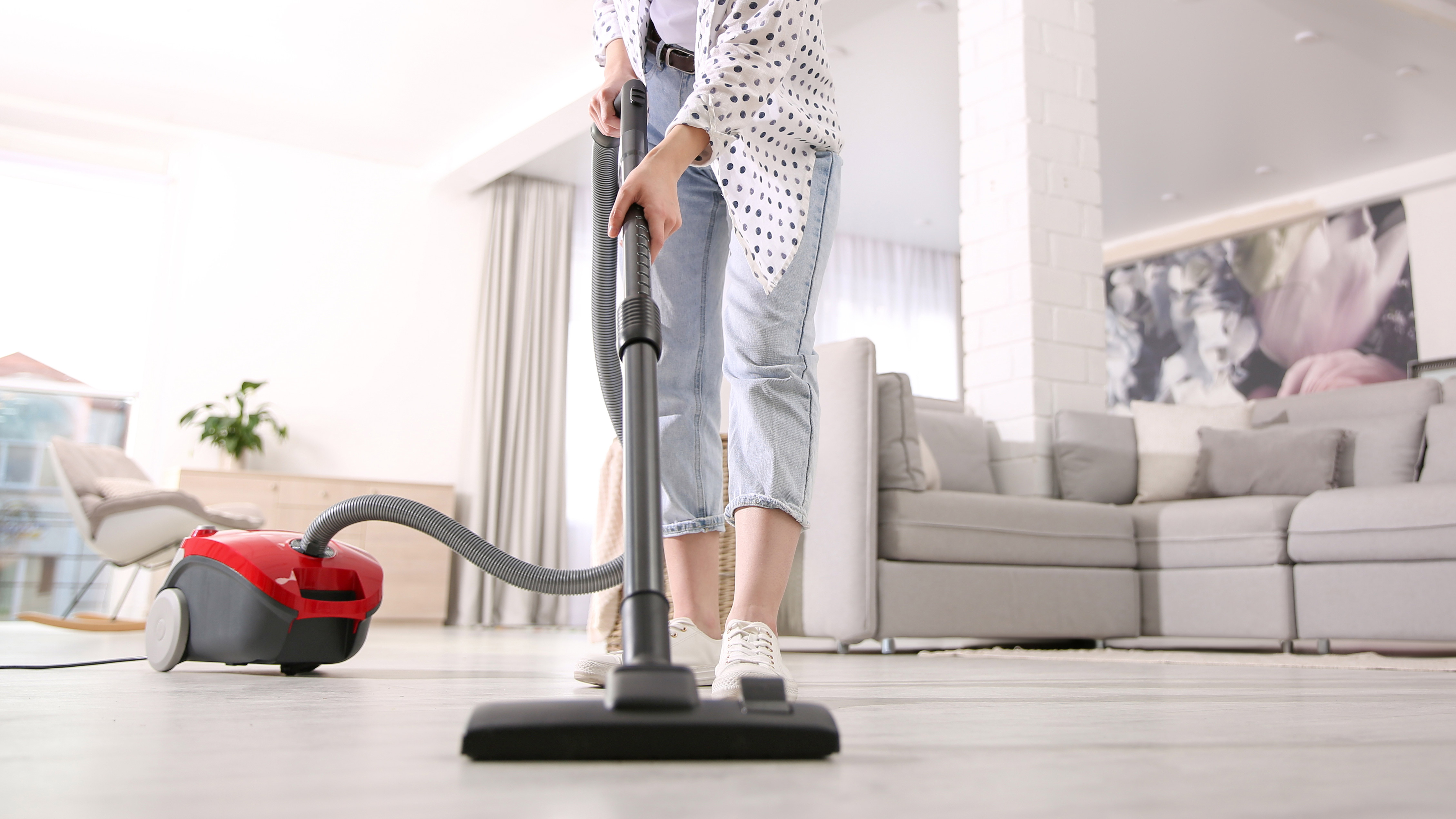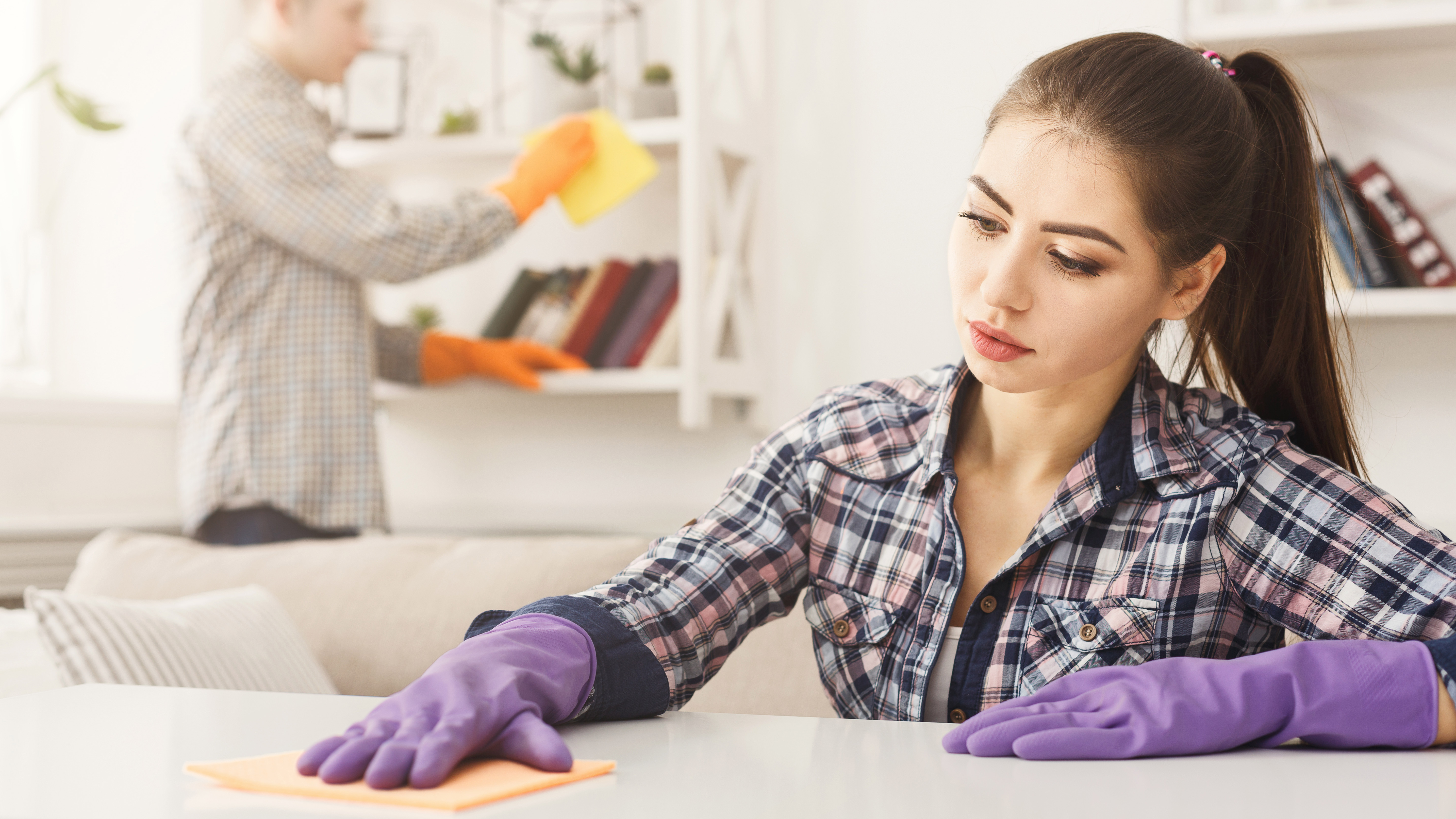Should I vacuum or dust first?
Here's the definitive answer to which chore you should tackle first

Sign up for breaking news, reviews, opinion, top tech deals, and more.
You are now subscribed
Your newsletter sign-up was successful
We all lead busy lives, and chances are that while you find time to complete your household chores, like us, it’s not something you really want to be doing. In fact, we all have that one chore that we dread more than anything.
A recent YouGov survey revealed that 11% of Americans rate dusting as their worst household chore, while 7% detest vacuuming. While you can invest in one of the best vacuums to clean your floors, knowing whether to vacuum or dust first is another thing.
Both vacuuming and dusting not only ensure your floors and surfaces look great, but that they’re also free from allergens, fibers, skin cells, and pet hair.
If you particularly loathe one of these chores, you might be inclined to get it out of the way, but depending upon whether that’s vacuuming or dusting, you could be undoing all the hard work you’ve put in cleaning your home.
If you’re certain you want to get your hands on one of the best vacuums rather than read on to discover whether you should vacuum or dust first, then check out these great deals for some of the best on the market.
So, should you vacuum or dust first?
When it comes to which of these household chores you should tackle first, cleaning experts unanimously agree that you should dust before vacuuming. Starting from the top of a room, for example on top of cupboards and working your way down dusting surfaces, before vacuuming the floor.
According to Martha Stewart, dusting a room before vacuuming ensures the particles that float into the air as you work, settle on the floor and are then sufficiently collected.
It’s also important to ensure you dust often forgotten areas, for example, ceiling fan blades, blinds, and even baseboards. Always reach for a microfibre cloth or a soft damp cloth, as these will ca[pture the most amount of dirt, whereas a feather duster will simply spread the particles even further around your home. Only once you’ve done this, should you consider reaching for the vacuum cleaner.
Sign up for breaking news, reviews, opinion, top tech deals, and more.
If you decide to vacuum first and then dust, materials such as plant pollen, fibers, hair, and skin cells, which make up dust, will remain in your home, but on the floor rather than on surfaces. According to the Epidemiology Journal, which published research on the subject, prolonged exposure to indoor dust like this can leave you feeling congested, and experiencing sinus problems and an increase in mucus - not something any of us want.
- We show you how to vacuum properly
- Discover how often you should vacuum
- Find out how to clean a vacuum

How often should you vacuum and dust
Now we’ve established whether you should dust or vacuum first, it’s also important to consider how often you should complete these chores too.
For most surfaces, you should dust once a week, and as Martha Stewart reveals this includes ceiling fans and light fittings as well as banisters and other surfaces in high traffic areas. However, items such as books that aren’t used as much can be left for one to three months.
The same is true for vacuuming. It’s a good idea to vacuum carpets and hard floors at least once a week, although in high-traffic areas like walkways and doorways, consider increasing this to twice a week to help prevent dirt from building up there.
While this might seem like a lot of effort to some, vacuuming often will actually mean there’s less dirt to clean up each time, and you’ll be able to reach those particles of dust before they settle deep in the carpet fibers.

Carrie-Ann Skinner was formerly Homes Editor at TechRadar, and has more than two decades of experience in both online and print journalism, with 13 years of that spent covering all-things tech. Carrie specializes in smart home devices such as smart plugs and smart lights, as well as large and small appliances including vacuum cleaners, air fryers, stand mixers, and coffee machines. Carrie is now a copy editor at PWC.